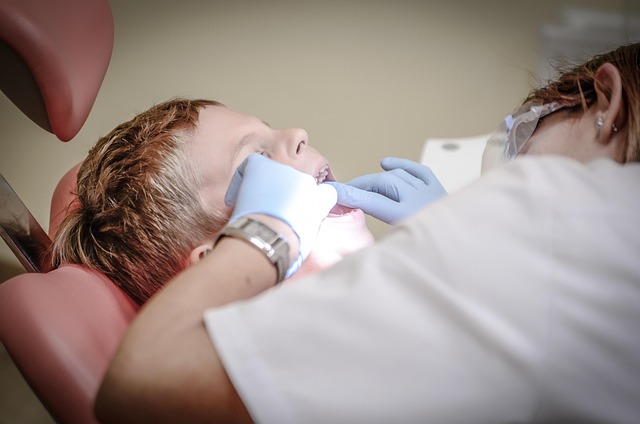Understanding Tooth Replacement Options for Older Adults
Tooth loss affects millions of seniors across the United States, impacting daily activities from eating to speaking. While dentures and bridges have traditionally been the go-to solutions, dental implants have become an increasingly popular option for older adults seeking a more permanent and natural-feeling restoration. These titanium posts surgically placed into the jawbone serve as artificial tooth roots, providing a stable foundation for replacement teeth that look, feel, and function like natural ones.

Tooth loss affects millions of older adults, with studies showing that nearly 27% of adults over 65 have lost all their natural teeth. While this statistic might seem alarming, advances in dental technology have created multiple effective solutions for replacing missing teeth. Each option comes with distinct advantages, procedural requirements, and long-term outcomes that seniors should carefully consider.
Why Are Dental Implants Particularly Beneficial for Seniors?
Dental implants offer unique advantages for older adults that extend beyond simple tooth replacement. Unlike removable dentures, implants integrate directly with the jawbone, preventing the bone loss that typically occurs after tooth extraction. This preservation of facial structure helps maintain a youthful appearance and prevents the sunken look often associated with long-term tooth loss.
For seniors, implants provide superior chewing efficiency, allowing them to maintain a varied, nutritious diet essential for healthy aging. The stability of implants eliminates concerns about slipping dentures during meals or social situations, boosting confidence and social engagement. Additionally, implants don’t require adhesives or special cleaning solutions, making daily oral care more straightforward for seniors who may have dexterity challenges.
What Is the Dental Implant Procedure Like for Older Patients?
The implant procedure for seniors follows the same basic steps as for younger patients, though additional considerations may apply. Initially, a comprehensive evaluation includes medical history review, bone density assessment, and 3D imaging to determine implant placement feasibility.
The surgical phase involves placing a titanium post into the jawbone under local anesthesia. Most seniors tolerate this procedure well, with minimal discomfort reported. The healing period, called osseointegration, typically takes 3-6 months as the implant fuses with the bone. During this time, seniors may wear temporary prosthetics to maintain function and appearance.
Once healing is complete, the final crown, bridge, or denture is attached to the implant. The entire process usually spans 4-8 months, though immediate loading options may be available for qualified candidates.
Are There Any Health Considerations for Seniors Getting Dental Implants?
While age alone doesn’t disqualify someone from receiving implants, certain health conditions common in seniors require careful evaluation. Diabetes, when well-controlled, doesn’t prevent implant success, but uncontrolled diabetes can impair healing. Heart conditions may require antibiotic prophylaxis or coordination with cardiologists.
Medications like bisphosphonates, commonly prescribed for osteoporosis, may affect jaw bone healing and require treatment modifications. Blood thinners may necessitate temporary dosage adjustments around surgery. However, most seniors with well-managed health conditions are excellent implant candidates.
Bone density naturally decreases with age, but adequate bone volume often remains for implant placement. When insufficient bone exists, procedures like bone grafting can create suitable conditions for implants.
How Do Dental Implants Compare to Other Tooth Replacement Options for Seniors?
Seniors have three primary tooth replacement options: removable dentures, fixed bridges, and implants. Each offers distinct advantages and limitations that affect daily life differently.
Removable dentures remain the most economical option initially but may require frequent adjustments and replacements. They can affect speech and eating, particularly with certain foods. Fixed bridges offer better stability than dentures but require grinding down adjacent healthy teeth for support.
Implants provide the most natural function and don’t affect surrounding teeth. While the initial investment is higher, implants often prove more cost-effective long-term due to their durability and minimal maintenance requirements.
| Treatment Option | Provider Examples | Cost Estimation | Key Benefits |
|---|---|---|---|
| Single Implant | Aspen Dental, ClearChoice | $3,000-$6,000 | Natural function, bone preservation |
| Implant-Supported Dentures | Affordable Dentures, Smile Direct | $15,000-$30,000 | Stability, improved chewing |
| Traditional Dentures | Aspen Dental, Affordable Dentures | $1,000-$3,000 | Lower initial cost, removable |
| Fixed Bridge | Local dental practices | $2,000-$5,000 | Fixed solution, faster treatment |
Prices, rates, or cost estimates mentioned in this article are based on the latest available information but may change over time. Independent research is advised before making financial decisions.
How Can Seniors Maintain Their Dental Implants for Long-Term Success?
Successful implant maintenance for seniors involves consistent daily care and regular professional monitoring. Daily brushing and flossing around implants prevents peri-implantitis, a condition similar to gum disease that can threaten implant stability.
Seniors should use soft-bristled toothbrushes and may benefit from electric toothbrushes if manual dexterity is limited. Water flossers can effectively clean around implants and may be easier to use than traditional floss.
Regular dental checkups every 3-6 months allow early detection of potential issues. Professional cleanings remove plaque and tartar that home care might miss. Avoiding hard foods that could damage crowns and not using teeth as tools helps prevent mechanical complications.
Lifestyle factors like smoking cessation and diabetes management significantly impact long-term implant success. With proper care, implants can last decades, making them an excellent investment in oral health for seniors.
Dental implants represent a transformative solution for seniors dealing with tooth loss. While the process requires careful planning and commitment to maintenance, the benefits of restored function, preserved facial structure, and improved quality of life make implants an increasingly popular choice among older adults seeking comprehensive tooth replacement solutions.
This article is for informational purposes only and should not be considered medical advice. Please consult a qualified healthcare professional for personalized guidance and treatment.




